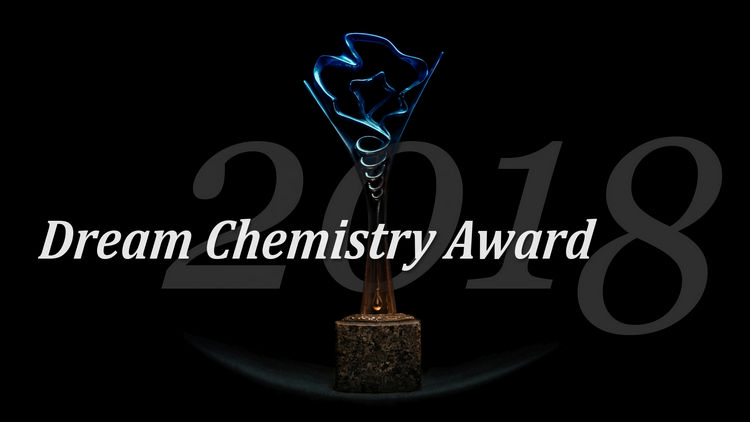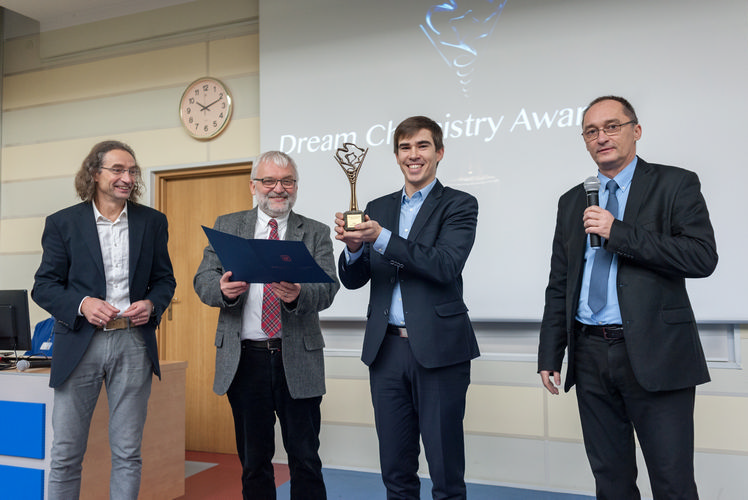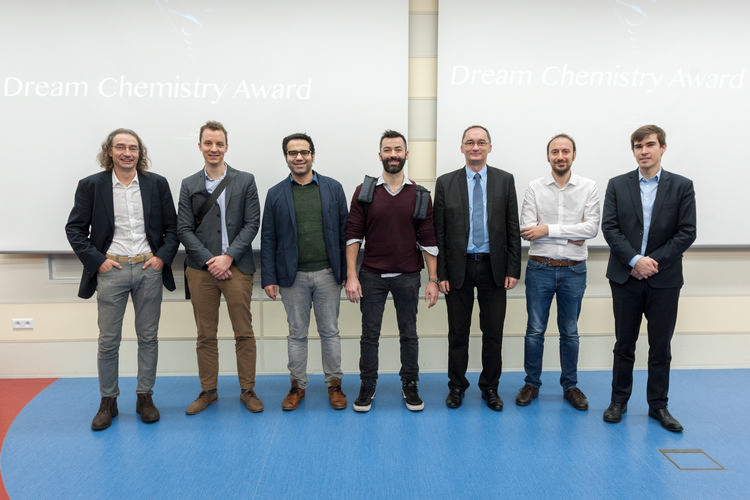
The winner of the global Dream Chemistry Award competition this year is Dr. Eric Daniel Glowacki from the Linköping University. The Scientific Committee awarding the prize praised the laureate's project on catalysts for the production of clean energy from the hydrogen peroxide.
In the Dream Chemistry Award 2018, organized by leading scientific institutions in Poland and the Czech Republic with the honorary support of the world's greatest chemists, the international jury awarded the main prize to Dr. Eric Daniel Glowacki from the Linköping University in Linköping, Sweden. The honorable distinction was awarded on the last day of the final, which was held in Warsaw this year on 3-4th December. The DCA competition, initiated in 2013 by the Institute of Physical Chemistry of the Polish Academy of Sciences (IPC PAS) in Warsaw, is currently organized in cooperation with the Institute of Organic Chemistry and Biochemistry of the Czech Academy of Sciences (IOCB Prague) and alternates between Warsaw and Prague.
“The Dream Chemistry Award is unique. In contrast to other awards, we do not award it for a specific achievement, but for a scientific project that is bold, visionary and waiting for implementation. This is an award for researchers who are not afraid of dreaming and they pursue their dreams not for themselves, but for the world to become a slightly better place for all of us. This unique scientific passion, one of the most important factors driving the development of civilization, was clearly visible in the presentations of this year's finalists,” say Professors Robert Holyst (IPC PAS) and Pavel Jungwirth (IOCB Prague), coordinators of the competition.

Dr. Glowacki, the winner of the DCA 2018, received the statuette and 10,000 euros for his project Abun-dant organic catalysts for a peroxide clean energy cycle. The main idea here is the generation and storage of clean energy using hydrogen peroxide.
“Hydrogen peroxide, H2O2, has been used as rocket fuel for decades. My dream is about something different: about the development of abundant catalysts that would allow us – in effective, cheap and safe ways – to produce, store, and release energy using hydrogen peroxide,” says Dr. Glowacki and explains: “Like its cousin fuel H2, H2O2 enables a carbon-free energy cycle. However, H2O2 exists as a stable liquid, which will not require compression as the gas H2 does. The possibility of using H2O2 as a self-contained energy currency has long been postulated, but catalytic materials that allow conversion of hydrogen peroxide in a useful way have not been available. Addressing this problem is core chemical concept of my dream – to chemically-tailor materials to make the hydrogen peroxide energy cycle possible.”
Dr. Glowacki is the author of 56 scientific papers cited nearly 2600 times. He studied at the University of Rochester, USA, received his doctorate in 2013 at the Johannes Kepler University with a thesis on technical chemistry. He is mainly engaged in bioelectronics, supramolecular chemistry, and crystal engineering. He collaborates with research groups from Japan, the United States, Italy, Croatia, Germany, and Poland. He is a native speaker in Polish and English, speaks both Russian and German fluently, as well as speaking Czech.
The “Top 5” group of finalists included also Lorenzo Albertazzi from Eindhoven University of Technology in the Netherlands (project Can we replace cellular enzymes with artificial ones?), Jeremy Luterbacher from Ecole Polytechnique Federale de Lausanne in Switzerland (From plants to green chemicals: break-through processes using chemical functionalization), Michael Saliba from the University of Fribourg in Switzerland (Stable and efficient perovskite solar cells via polyelemental, multicomponent combinatorial engineering) and Alex Shalek of the Massachusetts Institute of Technology in the USA (Novel chemical probes for spatially-resolved, single-cell profiling of tumors to identify new therapeutically actionable mechanisms of immune evasion).

Scientists who are under 37 years of age and who obtained their PhD no more than 8 years ago are eligible to compete for the Dream Chemistry Award. A condition for accepting the application is the nom-ination of a candidate by a researcher with a PhD or higher and at least 10 years of experience in sci-ence/natural science. The decision on the award is made by the Scientific Committee composed of a dozen or so professors of the best Polish scientific institutions specializing in chemistry, physics, biolo-gy, medicine and materials engineering. The Honorary Committee of the Dream Chemistry Award compe-tition includes the following renowned chemists: the Nobel Prize winner Professor Richard Schrock (MIT), Professor Krzysztof Matyjaszewski (Carnegie Mellon University), Professor Josef Michl (Univer-sity of Colorado Boulder and IOCB Prague) and Professor Bartosz Grzybowski (Uslan National Institute of Science and Technology and IOC PAS).
Last year's DCA prize, awarded in Prague, was won by Dr. Jessica R. Kramer from the University of Utah, USA, for a project devoted to the development of new methods and tools for studying changes in the structure of glycocalyx, the oligosaccharide layer covering cell membranes. A better understanding of its impact on the development of cancer cells would give the opportunity to develop new anti-cancer therapies.
More details about the competition can be found at www.dreamchemistryaward.org.



